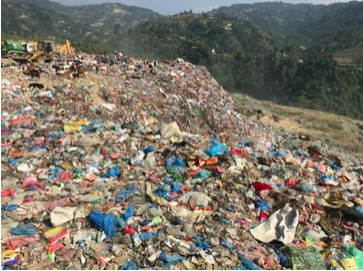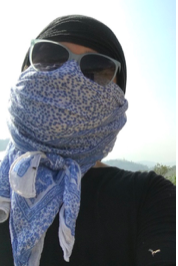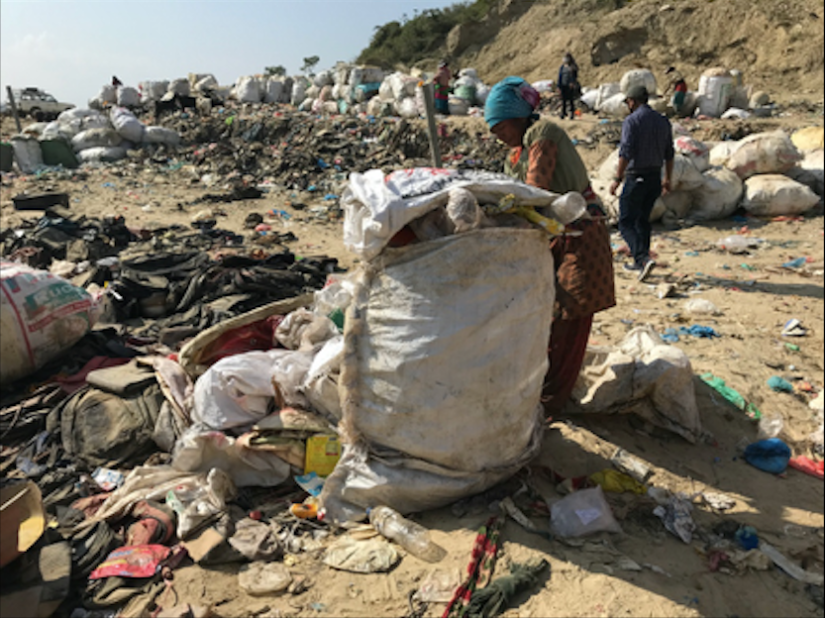Our series ‘Letters during COVID-19 is an exchange of thoughts, a collection of digital letters exchanged among colleagues in lockdown and their thoughts about research and field work – from afar and within’.
Switzerland 19th April 2020
My dear colleagues,
I am sitting on my nice balcony in a luxurious surrounding in the middle of Europe and I know your situation in Asia is much worse. The lockdown we experience here is a lighter version of what you experience in Sri Lanka, India and Nepal. The consequences of the SARS-CoV2 pandemic in our country will be harsh but we fall into a well-established governmental social welfare system that tries to cope with what is best for its people. Knowing the socio-political and economic situation of the majority of people within your countries, the ill-equipped social networks there and the governments’ power games being played at the costs of its population, I am deeply scared about the majority of your population and also about the long-term social and political security.
Thinking of our research field – Urban Solid waste Management, I am also looking afflicted towards those who work with, on, and in waste. Our governments consider waste workers as system-relevant key actors during the SARS-CoV2 pandemic. We all know waste can become a huge hygiene problem if it does not get collected on a regular basis.
Currently, in Europe, we have spring, a wonderful period of the year, with a warmer climate. So even in our countries these days, an irregular waste collection would cause threats to hygiene and health. In the current global health scenario, the warmer weather would not be a good addition and could turn the situation even worse.

Thinking back to fieldwork in Asia in November 2019, I remember being shocked when I was standing on top and in front of the landfill sites in Colombo and Kathmandu. I was imagining and experiencing the (health) risks of the waste workers for whom the unhygienic work environment was just another regular working day. I was standing on top of the waste mountain in Sisdole, Nepal, trying to protect myself of the smells, dust and imagined germs that were floating around.

I remember fighting with tears thinking about the harm we humans do to this planet and the never healing chronic wounds we cause to nature. However, I could leave the waste mountain again, but there were over 350 scavengers who live mainly in the waste, on top of it and make a living from it. They did not leave but continue to thrive there.
The scavengers continue to be exposed to the high risks – especially health risks related to the respiratory system, as the health workers of the nearby clinic reported – and are even more exposed to risks now during the SARS-CoV2 pandemic. As we have all learnt, the virus leads to infections of the respiratory system causing huge negative impacts on the lungs, even apnoea. People at risks are those who have a bad immune system and pre-existing diseases.
My thoughts are with the waste workers in Asia a lot these days: They are system-relevant as waste causes and increases health risks, but their security is not attended: Not before SARS-CoV2 and I am 100% sure not during and after.
Waste is always a risk but now the risk is greater as waste is contaminated and we also know the hospitals and health clinics in our field sites do not all attend to the waste management measures for medical hazardous waste. The exposure to risk is always high, but now even higher and I am sure the local governments cannot deal with the increased risks of one particular group, even so, they are considered system-relevant. And even so, the governments attend to waste workers, it will look into the official waste worker groups and not the informal waste workers that are part of the system, that the governments count on but never legalised and formalised into the ‘more secured’ official waste governance systems.
The informal waste workers are used as system-relevant infrastructure but never appreciated, nor taken care of by the authorities.
Their lives are continuously under threat and risk and even so they might personally perceive it less risky, they live with the risk as being normal, I assume, nowadays the informal waste workers are made aware of the changing situations in their cities they collect the waste in and might perceive the risks increasing. I am not even sure if the informal waste workers are still allowed to function. I am unaware as to whether governments have restricted their livelihoods and if their lives have become even more threatened and vulnerable as they have to collect ‘illegally’ to make a living.

Yesterday I watched the news and there was a short documentary on the Waste city in Cairo and how they continue to keep the city clean to keep up a decent hygienic standard but their request for protective cloth, respiratory masks and other security measures were not yet attended to. The leader of a waste worker community commented out of his fairly luxurious apartment: “We hope that during the years our bodies have become naturally vaccinated towards all viruses in the world… we cope every day with so many infectious wastes, with so many unhygienic materials, so I hope we can survive…” Another person, a waste worker directly collecting waste from the street and homes in Cairo was less optimistic. He was reported to have been sick the last weeks with fever, diarrhoea and his other colleagues too, still suffer from it. He says, “As long as we can work, we are alive and we hope that it does not get worst,” as he knows, if SARS-CoV2 spreads in the waste city, it becomes the worst ever seen killing field in Cairo.

With these statements in mind, with my experiences in India, Sri Lanka and Nepal standing on top and in front of the wasteful uncontrolled proliferation of humankind, I deeply hope, that the governments of the countries we do research in acknowledge the system-relevancy of the waste workers – formal and informal – and create measures to limit the risks they are exposed to. I also hope the pandemic might help to change the waste governance institutional architecture and integrates the informal waste workers in the more secured legalised and official waste management system. And even more, I hope the pandemic showed even more how important a good waste management system becomes for the society at large, as waste increase health threats and therefore it is one of the most relevant sectors of a society to function and to be attended to. I strongly hope that the authorities will recognise and attend towards that relevancy and finally adopt the current waste governance systems in such a way that they are better managed and not remain a field of political power game, corruption and unjust profitmaking on back of the most vulnerable of our societies – the (informal) waste workers.
My thoughts and my heart are with you and the waste workers in the world. May the virus not increase their exposure to health risks and may the dumping sites of the societies’ wasteful phlegm not turn into killing fields for those who keep our human settlements clean.
From Europe with love,
Pia
***
Pictures and story by: Pia Hollenbach

